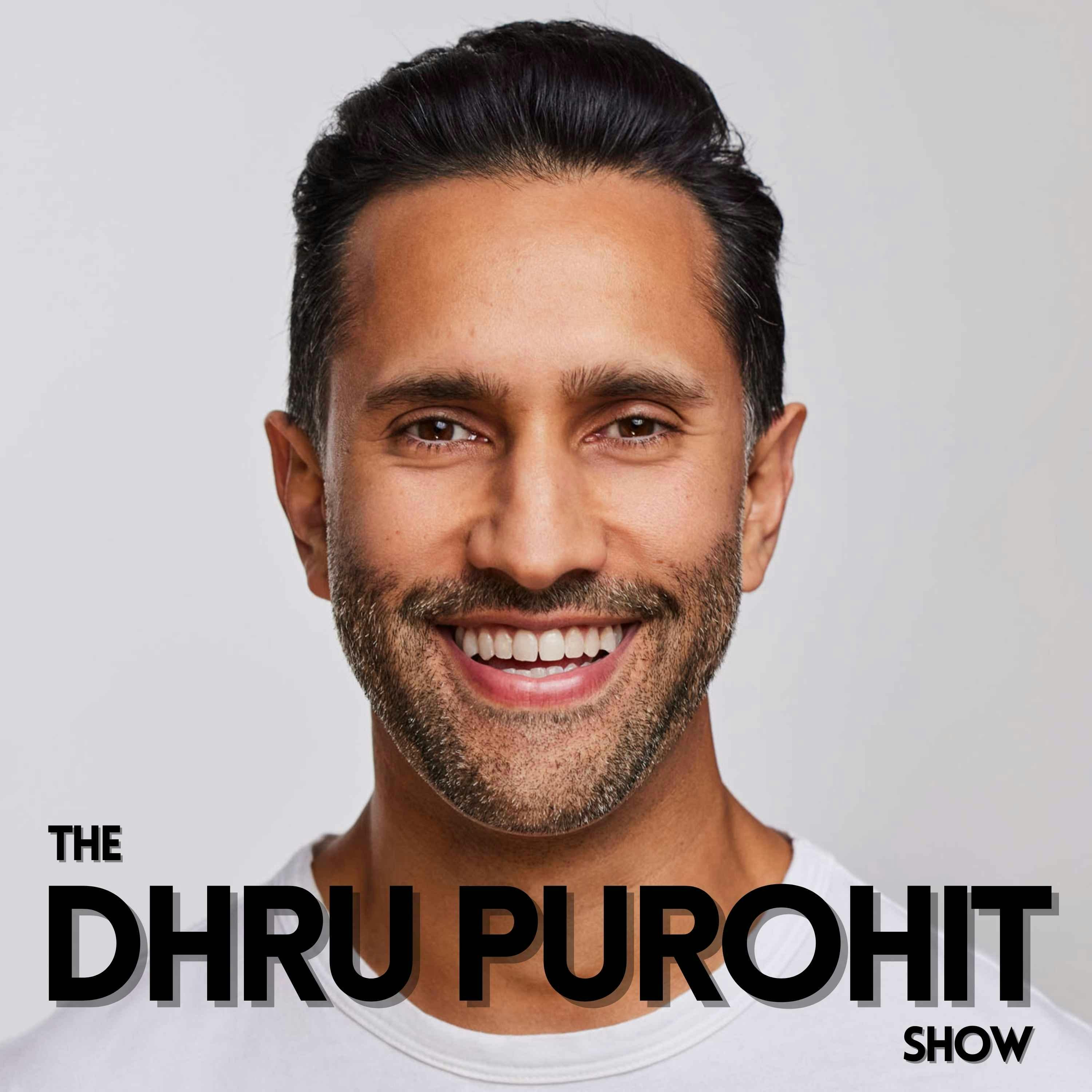
Dhru Purohit Show
Why Excess Added Sugar is Driving Modern Diseases and How to Take Back Our Metabolic Health and Overcome a Sedentary Lifestyle
02 Jun 2025
This episode is brought to you by Cozy Earth and Ollie. Sugar is everywhere in the modern diet, and it's silently driving a massive wave of chronic illness. From insulin resistance and fatty liver to cognitive decline, the overconsumption of ultra-processed, sugar-laden foods has created a health crisis hiding in plain sight. As scientists uncover deeper connections between sugar, metabolism, and brain health, one thing is clear: this isn’t just about cutting calories—it’s about changing the way we eat to protect our long-term well-being. Today on The Dhru Purohit Show, we’re bringing you a special compilation episode featuring Dhru’s conversations with top experts on the connection between insulin resistance, fatty liver, and Alzheimer’s disease. Dr. Robert Lustig shares the impact of added sugar on mitochondrial health and metabolism. He also discusses what you can expect when significantly reducing the amount of added sugar in your diet, why the quality of your calories matters, and the fascinating ways our bodies store fat. Dr. Richard Johnson discusses his revolutionary new hypothesis on the link between fructose consumption and Alzheimer’s disease. Dhru and Dr. Johnson discuss the evolutionary mechanism behind fructose metabolism, insulin resistance, and weight gain, which has backfired due to its overconsumption. In this episode, Dhru and his guests dive into: What is leptin resistance (2:11) Thin on the outside, fat on the inside (TOFI) (5:55) The three sites of fat deposition in the body (6:47) Key findings from the SHINE study (17:03) The Metabolic Matrix: feed the gut, protect the liver, and support the brain (21:35) Dr. Johnson’s hypothesis on the link between Alzheimer’s and fructose consumption (25:05) The origins of Alzheimer’s: what’s happening in the brain (33:28) Uric acid as a driver of fat accumulation, and its connection to gout, obesity, and other diseases (31:13) The relationship between salt, dehydration, and fructose production (45:51) How fructose increases our cravings for sugar (50:01) The role of fructose in Alzheimer’s disease (56:56) Also mentioned: Full episode with Dr. Robert Lustig Full episode with Dr. Richard Johnson This episode is brought to you by Cozy Earth and Ollie. Right now, get 40% off your Cozy Earth sheets and sleepwear. Just head over to cozyearth.com/dhru and use code DHRUP. Want to give your dog the best in clean eating? Take the online quiz and introduce Ollie to your pet. Right now, Ollie is offering 60% off your first box of meals when you subscribe today! Just head to Ollie.com, use the code DHRU, and you’ll get 60% off your first box of meals in your subscription.Sign up for Dhru’s Try This Newsletter Learn more about your ad choices. Visit megaphone.fm/adchoices
No persons identified in this episode.
No transcription available yet
Help us prioritize this episode for transcription by upvoting it.
Popular episodes get transcribed faster